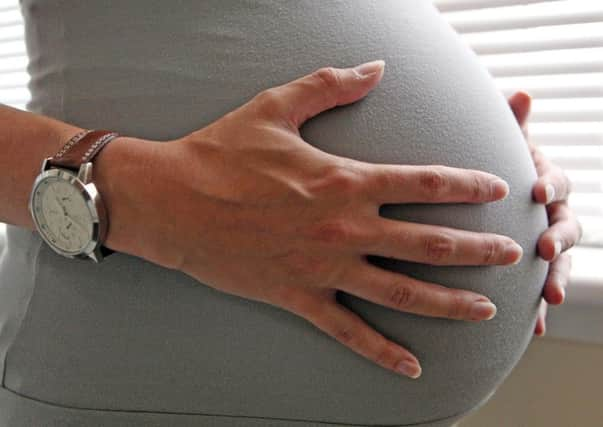Melody Redman: Help the NHS to help babies like James


Last night, my pager bleeped and I was asked to urgently attend an imminent delivery; baby James was due any moment and needed some assistance. James had a difficult delivery and, when he made his first appearance, he did not cry or respond to some simple techniques, so he needed us to inflate his lungs with a few breaths using a special mask. This helped and soon I was able to carry him back to his mum. Seeing the delight on the faces of his mum and dad was such a precious moment.
Apart from the brief help he needed for his first few breaths, James had a great start to life. Not all babies do so well, and the pain behind a parents’ eyes when we say we need to take them round to the neonatal intensive care unit is equally unmistakable. Hopes of a healthy baby boy or girl can soon be shattered and, when already fatigued and full of expectations, this can be very hard for them to process, particularly in cases where the obstetricians are dealing with an unwell mum too.
Advertisement
Hide AdAdvertisement
Hide AdDespite sometimes difficult and challenging births, we have a neatly orchestrated process which means these babies and their mums are given the very best chance to thrive. For James, like most babies, the radiographer scanned him twice whilst in his mum’s womb, and his mum had lots of blood tests to check for conditions which might affect him.
She was given advice about how to keep him healthy whilst he was growing inside her. The GP offered her advice when she had a health problem in pregnancy. The midwife discussed everything with her in advance. The hospital domestics made sure the room was immaculate, and the porters ensured there was an air canister with the equipment so that we could breathe for him. The ward clerk prepared his mum’s notes, and the receptionist directed his mum which way to go when she arrived, in labour. All of these people made it safe for James to come into the world.
Before he goes home, he will have a screening check to test for eye problems, hip problems, heart problems, ear problems, and so much more. He’ll have this again at the GP practice in a few weeks’ time. In five days, the midwife will prick his heel to do some tests on just a few drops of his blood, to help us find out if he has certain conditions, such as problems with his thyroid. If he needs prescriptions for medicines, he’ll get these for free.
Regardless of James’ family’s socioeconomic position or education, he received the same high standard of care that all our babies are eligible for, to ensure that his time in the womb was as optimal as possible. It is wonderful that our NHS allows these babies at the very start of their lives the best chance. However, we must ensure that we do not neglect their future by not addressing the long-term sustainability of the NHS.
Advertisement
Hide AdAdvertisement
Hide AdYou only have to pick up a paper or turn on the news to know that the NHS is at breaking point, and while NHS staff are working flat out to meet growing demand, with resources and funding remaining stagnant, the Government has rewarded them by capping their pay. Since 2005, doctors’ pay has fallen, in real terms, by almost a quarter (22 per cent). This has contributed to the falling staff morale and recruitment problems seen across the NHS, with a BMA survey finding that two-thirds of hospital doctors, and almost half of GPs, report vacancies in their departments and practices.
In my specialty, we have huge pressures on our undervalued and dedicated workforce. When morale is already at a low, and pressures are high, we cannot afford to undervalue allied health professionals, doctors, and nurses.
I want us to give our NHS the best possible chance, so that babies like James can have a secure future with high quality public-funded healthcare. Much is uncertain, and just as we pulled out all the stops for James, it is in everyone’s best interests for us to pull out all of the stops for the NHS.
The pay cap is unfair, unacceptable and must be lifted before it causes lasting damage to our health service. Investing in the NHS workforce and providing fair terms and conditions must be a priority for this Government, otherwise the NHS simply won’t be able to attract and keep the frontline staff needed to deliver safe, high-quality patient care.
Dr Melody Redman is a junior doctor in Yorkshire and BMA representative